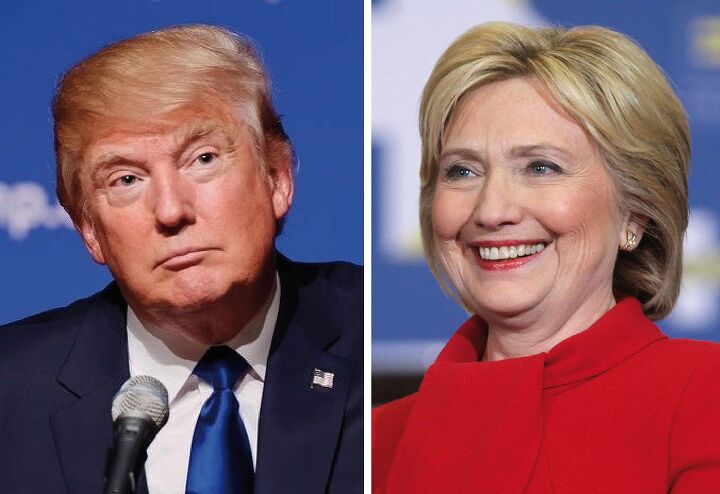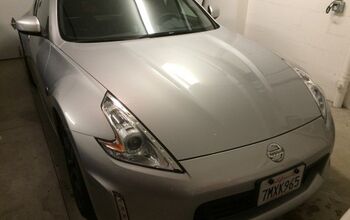Bark's Bites: The Popular Vote Doesn't Matter

Oh, come on. Don’t be mad. You knew I was gonna bait you a little bit this week with political stuff, right?
As I was reading the dozens and dozens of posts from my friends and frienemies on the Bookface yesterday, I couldn’t help notice all the discussion about the “popular vote” vs. the “electoral vote.” Depending on which side of the aisle you sit, I’m sure you have opinions about which one is more relevant. However, automakers play the popular vs. electoral game all the time, every day of the year.
What do I mean? Well, let me try to explain it in the context of both the election and the automotive game, and see if it makes sense.
In the general election, the vast majority of the states don’t matter in the end game. In fact, 37 of the 50 states this year were so easily predicted and determined that within minutes of the polls’ closing time, they can be called for one of the candidates. While a couple of states were in play this year that have not been in the the last two elections (namely Minnesota, Wisconsin, Michigan, and Pennsylvania), the candidates were both smart enough to ignore states that they had no chance of winning.
Could Trump have picked up a few votes by campaigning hard in California, Illinois, or New York? Might Hillary have done a little better in the Deep South if she had made some stops in Mississippi or Alabama? Sure, in both cases. Would it have made any difference in the Electoral College vote? Not a bit. And while winning the popular vote is a “nice to have,” they don’t give out the Presidency for it. Trump winning by 65-35 margins in the South is no different than Clinton winning 65-35 in California — there’s just as many electoral votes to be had there. The population numbers aren’t quite the same, though, which is what can lead to a candidate dominating the electoral map and losing the popular vote, as we saw this cycle.
What on Earth does this have to do with cars, you may ask? So glad that you did!
All of the automakers have staked out the grounds where they feel they can win, otherwise known as categories. BMW wins in entry-level luxury. Ford owns trucks in America, and small cars around the globe. Hyundai is doing comparably well with small and mid-sized sedans.
Sometimes it’s not categories of cars, but rather categories of customers. Nissan has been building its sales on the backs of sub-prime customers. Chevrolet does very well in the rural parts of the country. Lexus does well with virtue-signalling suburbanites. Subaru…wait, that ended badly last time we discussed Subaru stereotypes around here. Never mind.
But what happens when car companies start to go outside their categories — when they try to expand the map? It often doesn’t go particularly well. Nissan struggles with truck sales. GM has some very good cars, but nobody seems interested in buying anything other than their trucks. Mazda can compete with the 3, but the 6 has always been a sales dog, no matter how good the magazines always seem to think that it is. Sure, they add additional sales units by competing in these extra categories, but their overall profitability can be greatly damaged.
That’s why very few automakers tend to try to sell outside their well-defined categories with any real sense of urgency. Just like trying to expand the map in a presidential race to a state you have no chance to win, investing a good deal of money in research and development into a car that will never sell particularly well is a death sentence for an automaker. It’s why we can sit here in America and beg all day for Mercedes to bring over its new pickup or A/B class cars or for Audi to ship us some S1 inventory, and it will never, ever happen (well, maybe the pickup might happen. Maybe).
With the possible exception of Toyota and Volkswagen, most automakers have no interest in winning the global popular vote. They’d rather sell what they sell, win their electoral votes, and not worry about trying to do the most volume. Nobody would accuse BMW of not being successful (or Hyundai, or Nissan, for that matter), but they’ll never try to win a volume race in America, because sales volume for an OEM doesn’t always equal profitability.
Now, what’s Trump going to do about Ford’s production in Mexico? How will the markets react to a Trump presidency?
I guess we’ll all find out together, won’t we?
[Image: By Donald Trump August 19, 2015 (cropped).jpg: BU Rob13, Hillary Clinton by Gage Skidmore 2.jpg: Gage [ GFDL or CC BY-SA 4.0], via Wikimedia Commons]

More by Mark "Bark M." Baruth
Latest Car Reviews
Read moreLatest Product Reviews
Read moreRecent Comments
- Jalop1991 is this anything like a cheap high end German car?
- HotRod Not me personally, but yes - lower prices will dramatically increase the EV's appeal.
- Slavuta "the price isn’t terrible by current EV standards, starting at $47,200"Not terrible for a new Toyota model. But for a Vietnamese no-name, this is terrible.
- Slavuta This is catch22 for me. I would take RAV4 for the powertrain alone. And I wouldn't take it for the same thing. Engines have history of issues and transmission shifts like glass. So, the advantage over hard-working 1.5 is lost.My answer is simple - CX5. This is Japan built, excellent car which has only one shortage - the trunk space.
- Slavuta "Toyota engineers have told us that they intentionally build their powertrains with longevity in mind"Engine is exactly the area where Toyota 4cyl engines had big issues even recently. There was no longevity of any kind. They didn't break, they just consumed so much oil that it was like fueling gasoline and feeding oil every time


































Comments
Join the conversation
"Make Chrysler Great Again." Oh I forgot its Fiat. "Fix It Again Tony."
As a current Democrat who voted for Trump I'm not surprised that the majority of my fellow Dems are now whining about the Electoral College. My party has become too extreme so it's only natural they don't want states to have equal representation. Until we purge the Leftist extremists and move away from identity politics the Repubs will continue to increase their popularity. Since the Supreme Court is gone for the next 50 years and 23 Dem Senators (at least 9 in red states) come up for reelection in 2018 don't be surprised if Trump and the Cons see a lot of bi-lateral support. Trump proved to be a tour-de-force dismantling both the Bush and Clinton political establishments. Now he'll dismantle most of what Obama has done and likely only increase his popularity. This is what happens when you have a 'change' election and get outsmarted and outworked. I tip my hat to Kellyanne Conway for becoming the first female campaign manager to have her candidate win the Presidency. If my party doesn't purge the Leftist extremists, return to real Liberalism, and debate the issues vs pushing identity politics we could actually see 'Conservatism' grow. A year ago I never thought that was even possible.